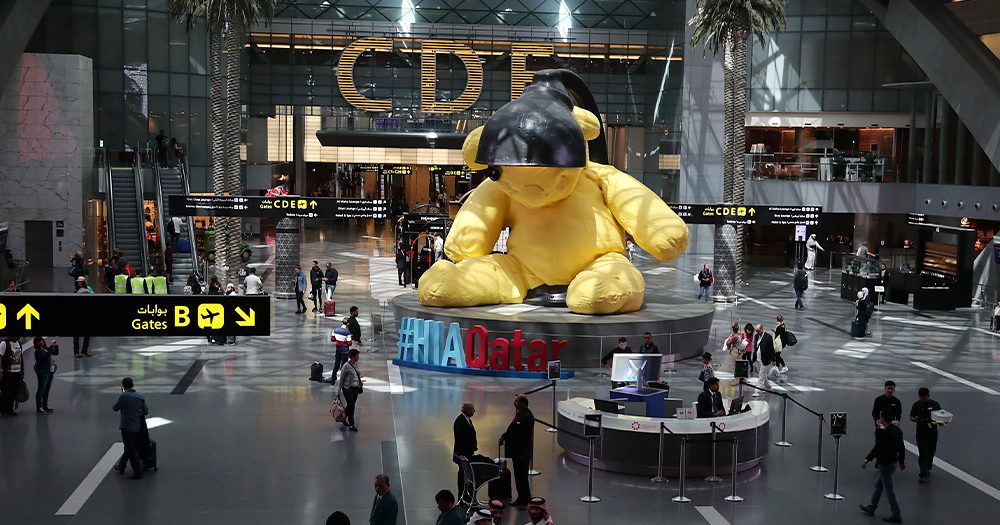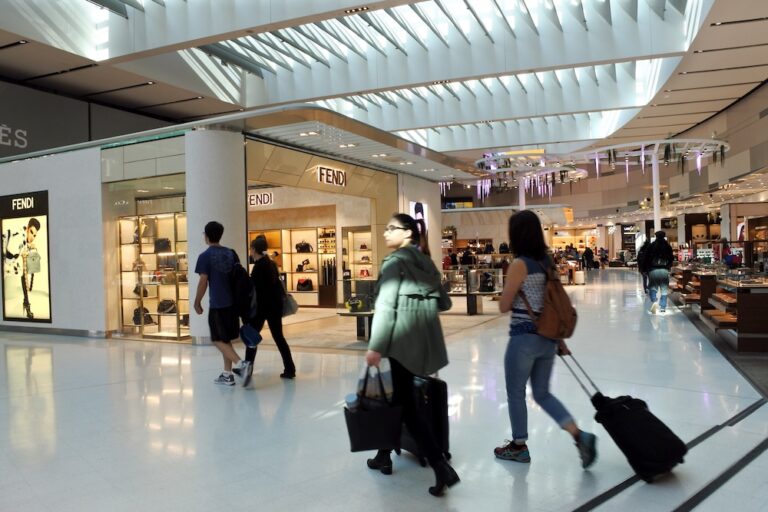Flight Centre Travel Limited (FLT) has reported a strong start to its 2023/24 financial year at its Annual General Meeting, with company chief Skroo Turner highlighting the key trends and opportunities ahead to its shareholders.
In encouraging signs, as the industry heads towards closing out the calendar year and bouncing into the second half of the financial year, the group reported its second-strongest first quarter (TTV) result ever of $6 billion, just below the record of $6.2 billion set in 2019.
As such, the company expects underlying (EBITDA) profit to be between $460 million and $500 million at the end of the full financial year on 30 June 2024. Last year, the group recorded an underlying (EBITDA) profit for the year of $301.6 million.
While all business verticals performed strongly, corporate played a significant role, contributing a record $3.1 billion in TTV, as the group outpaces the broader sector’s recovery and activity globally, reaching 72 per cent of pre-COVID levels.
Indeed, all leisure categories were again profitable, with online, independent, luxury and complementary pillars contributing 45 per cent of TTV and total leisure business up around 20 per cent versus last year’s first quarter result.
Meanwhile, the group said that tech investments, including internal initiatives focusing on AI and digitisation, streamlining processes, and non-customer-facing systems, would continue to ensure scale, margin and profit benefits were delivered.
Addressing shareholders at the company’s AGM, Flight Centre Limited CEO Graham Skroo Turner said, “While the market overall is still in recovery mode and experiencing some macroeconomic and political uncertainty, we are delivering solid year-on-year growth and see clear improvement opportunities in both the leisure and corporate sectors. We are well placed to capitalise given our diversity, balance sheet and strong brand and people networks, which continue to deliver compelling offerings to our customers.”
Air capacity improving, but Middle East and Europe still a concern

“One of the biggest impediments to recovery so far has been lack of airline capacity and competition. The good news is that conditions are gradually improving, which is expected to benefit travellers as the year progresses, although we are still concerned about the lack of available seats on services between Australia and Europe via the Middle East,” said Turner.
“According to IATA, international capacity reached 90% of the comparative pre-COVID level (September 2019) in September 2023. Our data indicates 88% recovery in Australia at the end of last month, with further growth expected in the months ahead as several key partners ramp up services, including Singapore Airlines, Emirates, Qantas and Cathay Pacific.”
“In another positive development, eight China-based carriers have now resumed Australian services, along with Taiwan-based China Airlines and Hong Kong’s Cathay. We welcome further additions and strongly support Turkish Airlines’ and Qatar Airways’ expansion plans, particularly in light of the challenges we are currently having in finding seats for customers.”
The return of attractively priced travel deals was also highlighted as a positive sign in Flight Centre brand’s recently launched Big Red Sale, its first global leisure marketing campaign since before the pandemic.
Turner said the group is closely monitoring macroeconomic conditions and world events, particularly the current conflicts in the Middle East and Ukraine.
“While we continue to monitor developments in relation to these tragic events and hope for a speedy resolution, we do not currently expect significant ongoing impacts on our business. Historically, travellers have tended to adjust plans to bypass affected areas during times of unrest, and overall travel volumes have not been materially impacted for prolonged periods.”
What’s the impact of macroeconomic conditions?

Off the back of rising interest rates, inflation, and an ongoing cost of living crisis here and overseas, Turner remains buoyant, saying, “Macroeconomic conditions have not historically deterred large numbers of travellers from taking off overseas to make the most of their limited holiday time.
“Despite recent interest rate hikes in some countries, travel demand remains fairly healthy, with industry volumes generally up on the prior year but below historic highs, as expected, given we are still 12 months or so away from the anticipated timeframe for a full recovery. This is reflected in the latest Australian Bureau of Statistics data, which shows that first-quarter short-term resident outbound departures are up strongly year-on-year but remain about 9% below the same period in 2019.
We believe the ongoing demand that we are seeing reflects our leisure customer base’s leverage to demographics that are less affected by mortgage stress, specifically the luxury sector and babyboomers, and a relatively widely-held customer view that travel is non-discretionary – a priority product they are prepared to budget for and invest in every year.”
Recent surveys paint a positive future picture, with the Global Business Travel Association finding about 70% of corporate travel buyers expect to increase or maintain their travel budgets in 2024.”
“Travel’s resilience is further underlined by consistent year-on-year market growth pre-COVID. Downturns have been relatively rare and short-lived, and, in some cases, they have been followed by sharp rebounds,” said Turner.
For the full AGM report, click here.






